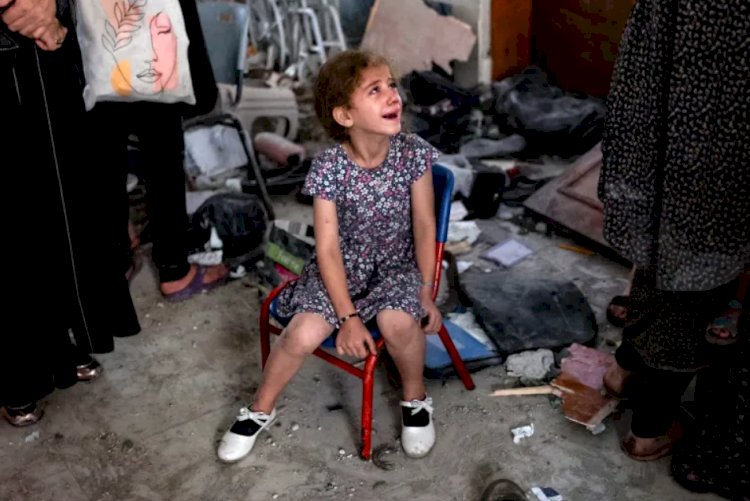Gaza Conflicts Escalates: Intensified Bombardment Across Gaza During International Efforts for Ceasefire
Recent Israeli airstrikes have heavily targeted multiple locations within Gaza, including the Nuseirat camp and the Sharif Tower in Mufti Land. Al Jazeera reports indicate numerous casualties from these attacks, with specific incidents involving the death of a Palestinian woman and injuries to others in bombings in Jabalia camp and Abasan in Khan Yunis. Further strikes have impacted Bani Suhaila, the town of Al-Qarara, and the Al-Shati refugee camp in Gaza City. Additionally, Israeli naval fire and drone attacks have been reported, with artillery shelling affecting areas east of Al-Bureij camp and residential buildings in Rafah being demolished.
Impact of the Gaza School Massacre
These recent bombardments follow a horrific massacre at a Gaza school, which was sheltering displaced individuals. Over 100 Palestinians were killed in this tragedy, which has prompted widespread international condemnation. Video footage from the scene revealed the devastating aftermath, with body parts scattered among rubble and burned mattresses amidst the debris. The scale of the massacre has elicited severe criticism from global leaders and organizations, including Arab states, Turkey, France, Britain, and the European Union. U.S. Vice President Kamala Harris has expressed grave concern, calling for a ceasefire and a hostage deal to mitigate further civilian casualties.
International Criticism and Diplomatic Efforts
The global outcry over the violence has led to renewed diplomatic efforts to negotiate a ceasefire. The White House has expressed deep concern over the Gaza school strike and has requested further details from Israeli officials. European Union foreign policy chief Josep Borrell has publicly condemned the violence, expressing horror over the images from the school. Palestinian President Mahmoud Abbas’s spokesperson, Nabil Abu Rudeineh, has urged the U.S., Israel’s ally, to reconsider its support, criticizing it for contributing to the killing of innocent civilians, including children, women, and the elderly.
Egypt, the United States, and Qatar have scheduled a new round of ceasefire negotiations for Thursday, August 15, as fears grow of a broader conflict involving Iran and Hezbollah. These diplomatic initiatives are crucial for stabilizing the region and preventing further violence.
Regional Tensions and Iranian Response
In a related development, the Iranian-backed Hezbollah armed group in Lebanon has launched a drone attack against military positions in northern Israel. Israel’s military reported unspecified damage but no casualties and has retaliated by striking several Hezbollah military structures in southern Lebanon. This action highlights the broader regional tensions and the potential for further escalation involving Iran and its allies.
Iran has reiterated its commitment to retaliating against Israel for the assassination of Hamas leader Ismail Haniyeh in Tehran on July 31. Iranian officials, including Supreme Leader Ali Khamenei and Revolutionary Guards General Ali Fadavi, have vowed a severe response, framing it as both a national and religious duty. Iranian media have reported that Tehran’s response will be substantial and intended to address what they view as a strategic mistake by Israel.
Current Outlook and Future Prospects
The conflict’s roots trace back to October 7, when Hamas fighters launched an assault on southern Israel, resulting in the deaths of approximately 1,200 people, mostly civilians, and the capture of more than 250 hostages, according to Israeli sources. In response, Israel initiated an extensive offensive against Gaza, which has led to nearly 40,000 Palestinian deaths, as reported by the Gaza health ministry. This staggering toll underscores the severe humanitarian crisis unfolding in the region.
As the situation continues to escalate, the international focus remains on achieving a durable ceasefire and addressing the humanitarian crisis. Efforts to broker peace and deliver humanitarian assistance are critical in the coming days. The success of ongoing negotiations and the ability of the international community to address the complex challenges of the crisis will be pivotal in determining the path forward.
Source: Reuters, AL Jazeera
Disclaimer
The views expressed in this article are the author’s own and do not necessarily mirror Islamonweb’s editorial stance.
























Leave A Comment